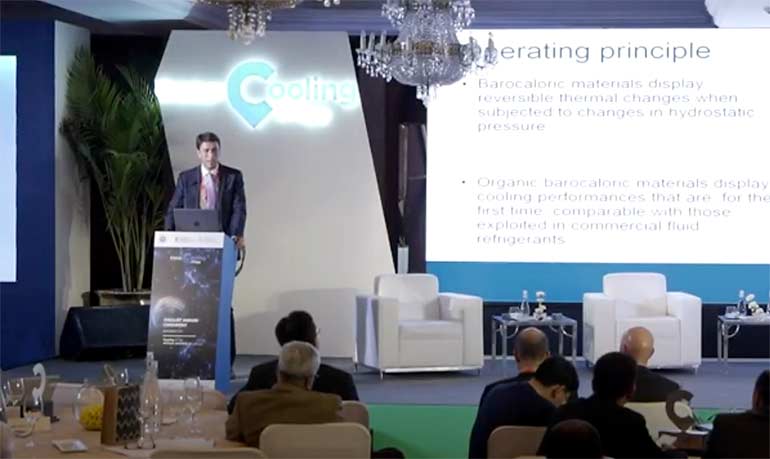Disruptive solid-state refrigerant tech firm secures £1.3m investment
- PostedPublished 30 March 2023
A UK-based company that has been developing a revolutionary type of refrigeration has secured a £1.3 million ($AU2.4m) investment, with the purpose of bringing to market a new technology which does away with refrigerant gas.

Barocal Ltd, a spin-out from Cambridge University’s Department of Materials Science and Metallurgy, is developing a cooling and heating method utilising solid-state organic plastic crystal.
The company was also a finalist in the 2020 Global Cooling Prize innovation competition promoted by British billionaire Sir Richard Branson.
Barocal’s innovative heat pump is based on non-vapour compression technology that is both inexpensive and non toxic.
The organic materials are able to release and absorb heat at different pressures as they change volume. Known as barocaloric, materials they are said to be more efficient than fluid refrigerants as well as being recyclable.
Rather than using refrigerant gases, solid-state barocaloric cooling takes advantage of the properties of a solid plastic crystal.

The process of applying and releasing pressure on the material provides changes to the molecular orientation, which results in a solid-state phase transition in the crystals.
The cooling effect can be used for room to air or water cooling. Research has shown that the thermodynamic behaviour of the plastic crystals is similar to refrigerants using vapour compression technology.
The technology can also be applied to heating, and the company is now exploring its breakthrough for domestic and commercial heating systems as a lower cost alternative to air source heat pumps.
An initial objective for this climate-friendly, zero-HFC technology will be to precisely cool and control the temperature of fluids and cooling baths used in research and industrial laboratories, and to demonstrate the replacement of vapour compression refrigerants to a small market with early adopter capability.
Barocal co-founder Xavier Moya said that heating and cooling accounts for the UK’s largest source (38 per cent) of CO2 emissions.
To meet the British government’s commitment of a 78 per cent reduction in emissions by 2035, new low-carbon solutions are required.
Existing technologies are still reliant on the combustion of natural gas to provide heating and the compression of volatile greenhouse gases to provide cooling.
If Barocal’s technology – which started as a joint project between Cambridge University, the Polytechnic University of Catalonia and the University of Barcelona – is seen as a practical alternative, these heat pump developments may yet become the new eco-friendly heating, air-conditioning and refrigeration solution of the future.
Barocal has a licence for the technology from Cambridge Enterprise, the university’s commercialisation arm, who have also participated in funding as part of a new sustainability initiative.
Over the next four years, Cambridge Enterprise aims to support at least 15 of the university’s spin-outs and startups working on technology that will rapidly cut greenhouse gas emissions.
- CategoriesIn SightGlass
- TagsSightGlass News Issue 28, solid state cooling



